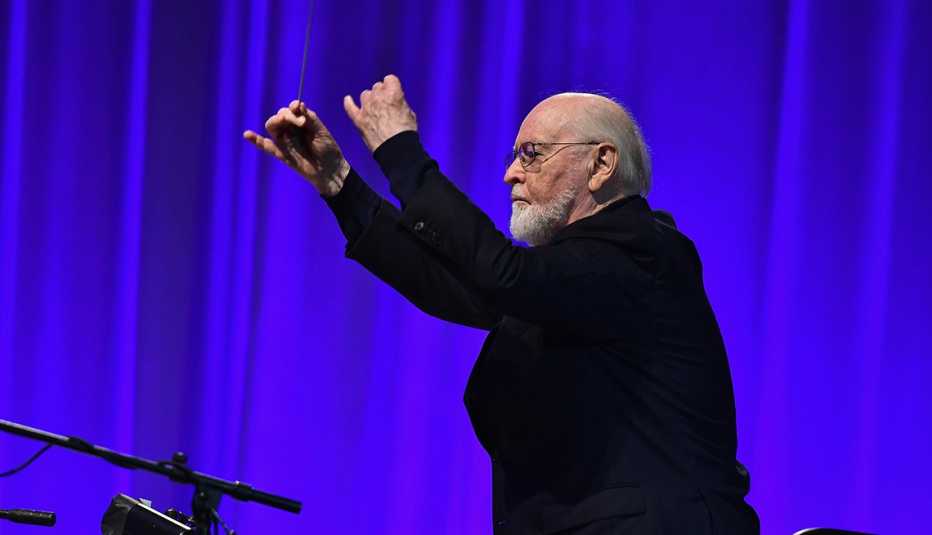AARP Hearing Center


Even if you don’t know acclaimed composer John Williams by name, you definitely know him by sound. The baa-dum baa-dum of the Jaws theme? He wrote it. The dun dun dun dun-ta-dun dun-ta-dun that welcomes Darth Vader to the screen? He’s responsible for that one, too. The swashbuckling bravado of the Indiana Jones theme, the mournful violin in Schindler’s List, the wonder-struck chords of Jurassic Park? Yes to all three — and dozens more. Cinema’s most celebrated composer is turning 90 on Feb. 8, and to celebrate his big day, we’ve compiled a list of fascinating facts about his very musical life. But if you want to really honor him on his birthday, finish reading this list and then go watch one of the more than 100 films that feature his music!
1. He single-handedly created the sound of Star Wars
Between 1977 and 2019, Williams wrote the original scores for all nine films in the Skywalker Saga, amounting to some 18 hours of recorded music. The score became known for its use of Wagner-like leitmotifs, or repeated musical themes associated with different characters; you know instantly, for example, when Darth Vader is approaching because the music turns militaristic, while Leia is often scored by sweet, flute-driven melodies. His work on the franchise earned him an Oscar and six Grammys, including one for the original music that plays in the Galaxy’s Edge themed lands in Disneyland and Walt Disney World.
Don’t miss this: Every Star Wars Film (So Far), Ranked!
2. He’s responsible for the highest-selling instrumental single of all time
According to the Guinness Book of World Records, the best-selling instrumental song of all time is producer Meco’s disco arrangement of “Star Wars Theme/Cantina Band,” which was featured on his album Star Wars and Other Galactic Funk. The single peaked at No. 1 on the Billboard Hot 100 in October 1977, and it stayed on the charts for 20 weeks. It ultimately sold more than 2 million units, making it the only instrumental single to ever reach platinum.
3. He made a cameo in The Rise of Skywalker
Williams announced he was retiring from the Star Wars universe after 2019’s The Rise of Skywalker, and producers celebrated his accomplishments with a brief cameo in the film. At the 48:36 mark, the white-bearded Williams makes a blink-and-you’ll-miss-it appearance as Oma Tres, a bartender on the planet of Kijimi. To make the scene even more special, director J.J. Abrams tasked the production team with filling the bar with props that referenced other John Williams–scored films done up as if they were made a long time ago, in a galaxy far, far away. Squint and you might spot a time-turner from Harry Potter and the Prisoner of Azkaban, an iron from Home Alone, Indiana Jones’ whip, yellow barrels from Jaws, E.T.’s spaceship and tiny pilot wings from Catch Me If You Can.



































































More on Entertainment
The Enduring Power of 'West Side Story's Music
Why the Stephen Sondheim/Leonard Bernstein score is immortalThe 30 Movies Every Grownup Should Know
Films from the 1930s through today that are essential viewing for every adultThe Best Sci-Fi Movies of All Time
Click and watch the 15 top science fiction titles from 'Metropolis' to 'Dune'